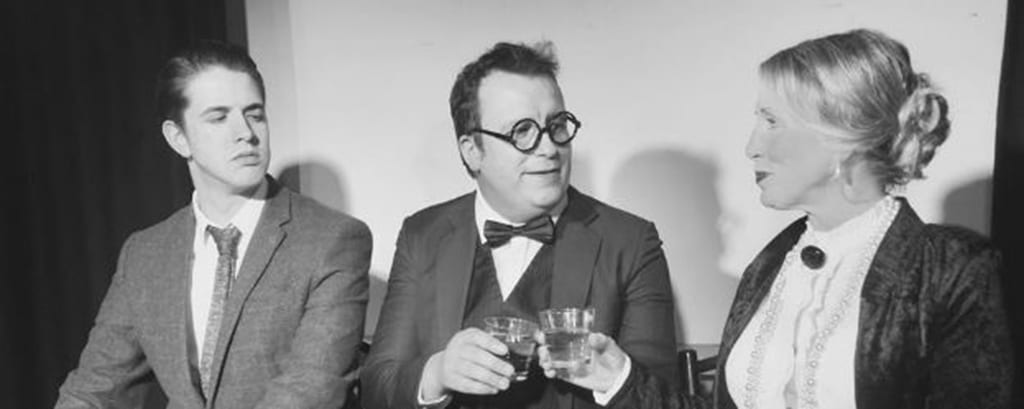You have disgraced yourselves again. Is this to be the recurring celebration of the arrival of Irish genius? WB Yeats’ famous words to the audience who rioted at the premier of Sean O’Casey’s “The Plough and the Stars” referred to the similar reaction met by JM Synge’s “The Playboy of the Western World” 19 years earlier. The objection in both cases was that the plays showed the Irish in a poor light, and therefore were not helpful to the struggle for home rule.
Writer and director Neil Weatherall clearly sees parallels with Brexit-era Britain, and with lines like “take our country back” sprinkled liberally throughout the dialogue, no one can say he hasn’t worked to bring them out. To my mind, this is somewhat facile – wherever you stand on Brexit, it isn’t an armed insurrection against a military occupation, and its leaders wouldn’t have been executed had it failed. But that aside, his story of WB Yeats, Lady Gregory and Padraig Pearse raises some interesting questions about the role of art as propaganda, and also about the still-tortured relationship between Ireland and England – like Synge before him, the London-born Martin McDonagh has found himself condemned as “not sufficiently Irish” by those who imagine he’s making fun of the people of western Ireland.
The writing has some nice moments of comedy, particularly about the “People’s Front of Judea” nature of Irish partisan groups. (“What happened to the Movement for Irish Unity?” “They split up.”) It’s also a nice touch that in the final scene, the actor who played the now-executed Pearse plays the actor playing him in The Plough and the Stars, to the obvious consternation of Yeats who thinks he’s seeing a ghost. Since Pearse only appears in that play as a figure giving a speech outside a window, this means in true Stoppardian fashion that in this play he appears on stage – again, a nice touch.
The problem is the direction. I’ve seen cold readings where the actors interacted with each other more than they do here – for literally 10 minutes at a stretch, they simply stand in a triangle and talk at each other without moving. If Weatherall has stepped in to direct this because there was no one else, he needs to give his actors more to do, or they need to take matters into their own hands and work it out for themselves. Also, whilst I appreciate that the Hen and Chickens doesn’t have the facilities the Olivier, it doesn’t work to have a sudden gale of sound from offstage just because someone has drawn back a curtain slightly.
I don’t know if Weatherall was moved to write this by the centenary of the Easter Rising last year, but he is no doubt aware of the visitor at a wreath-laying ceremony at Dublin Castle who was told that she didn’t belong there and should go home because of her English accent, only to reveal that she was the great-granddaughter of James Connolly, one of the very revolutionary leaders they were commemorating. It’s the sort of irony that would be grist to his mill. All in all, this is a potentially interesting piece which would perhaps benefit from being broadened and expanded from its current 50 minute length – the relationship between Yeats and Lady Gregory could be fleshed out, for example – and certainly deserves a better performance than it gets here.

